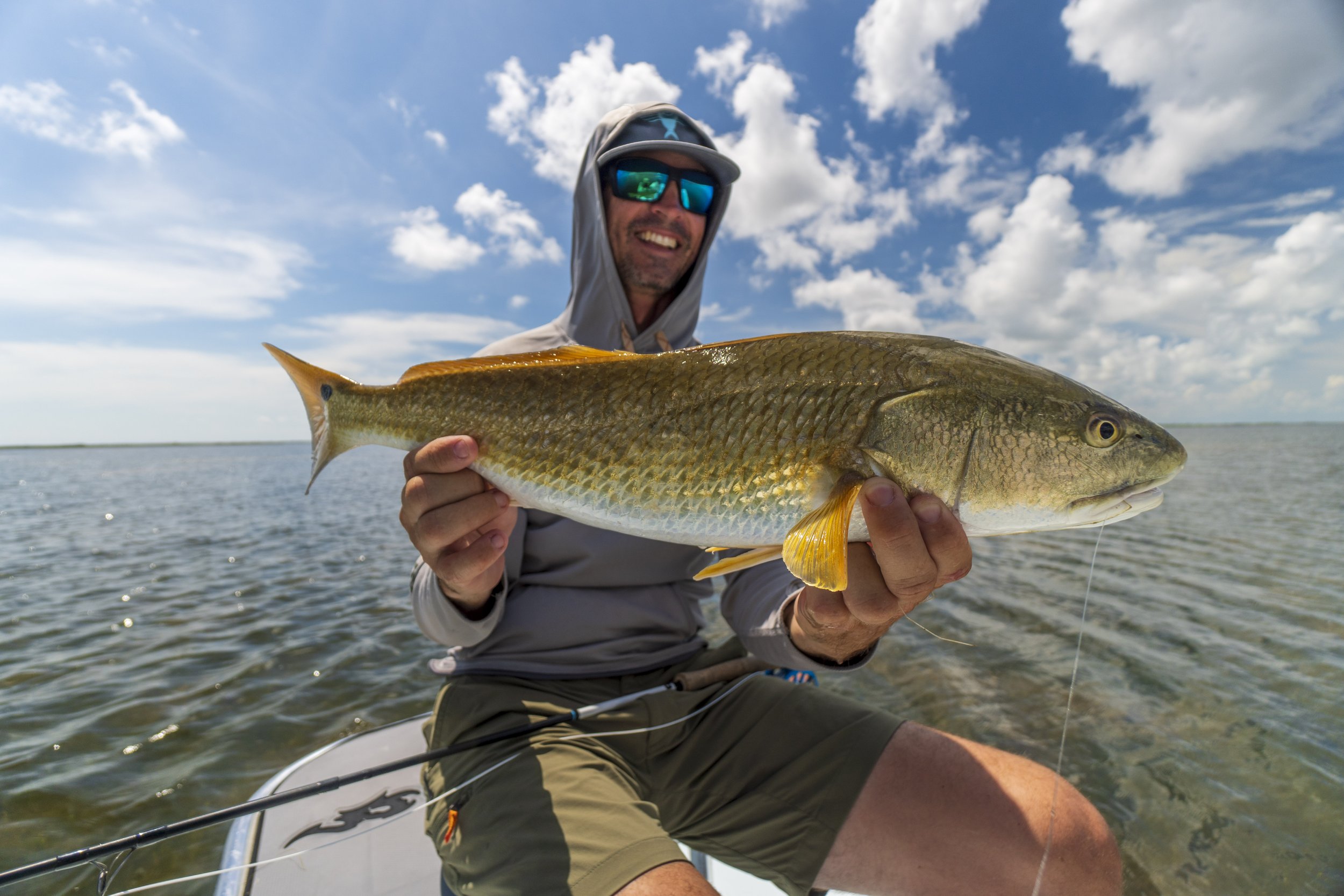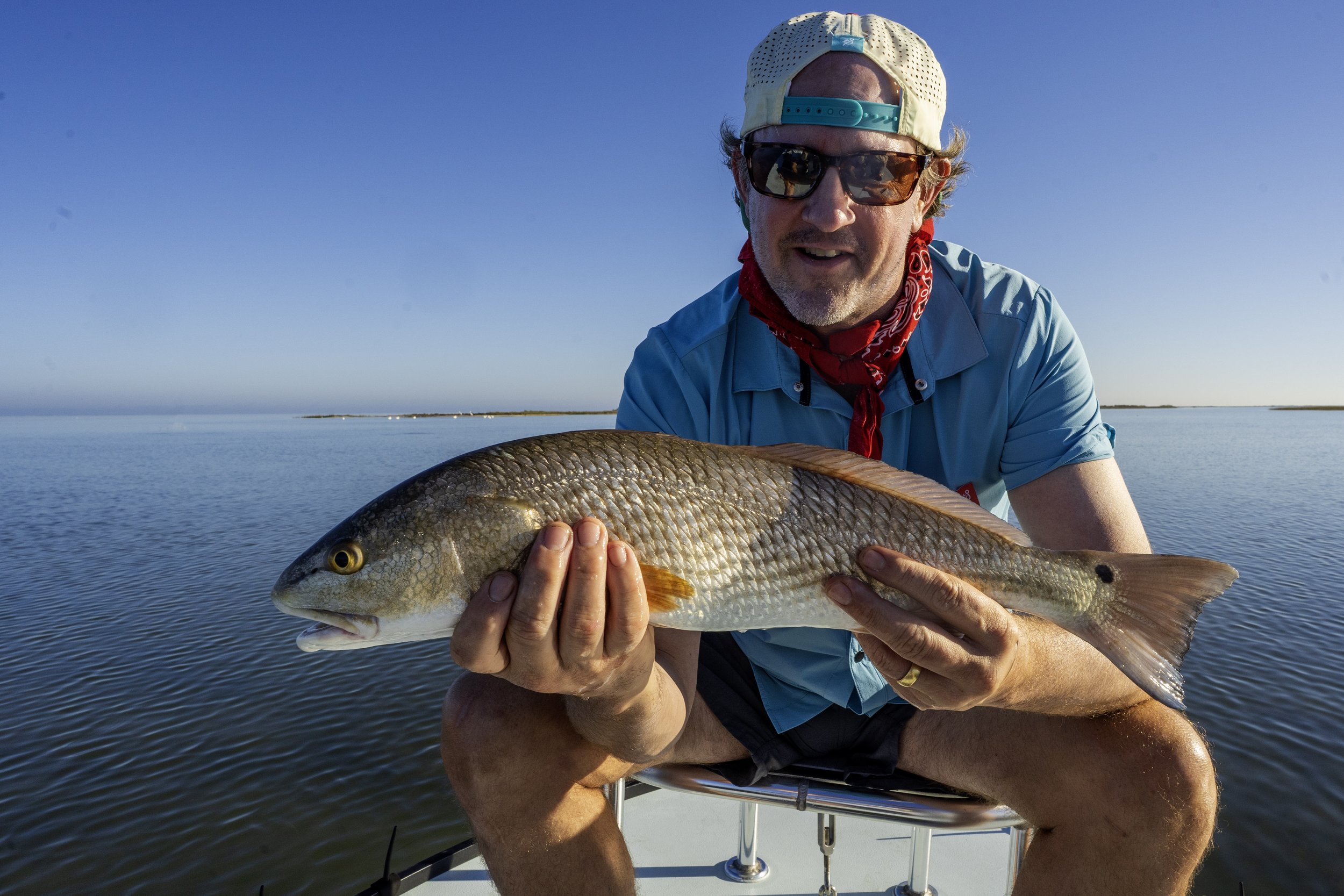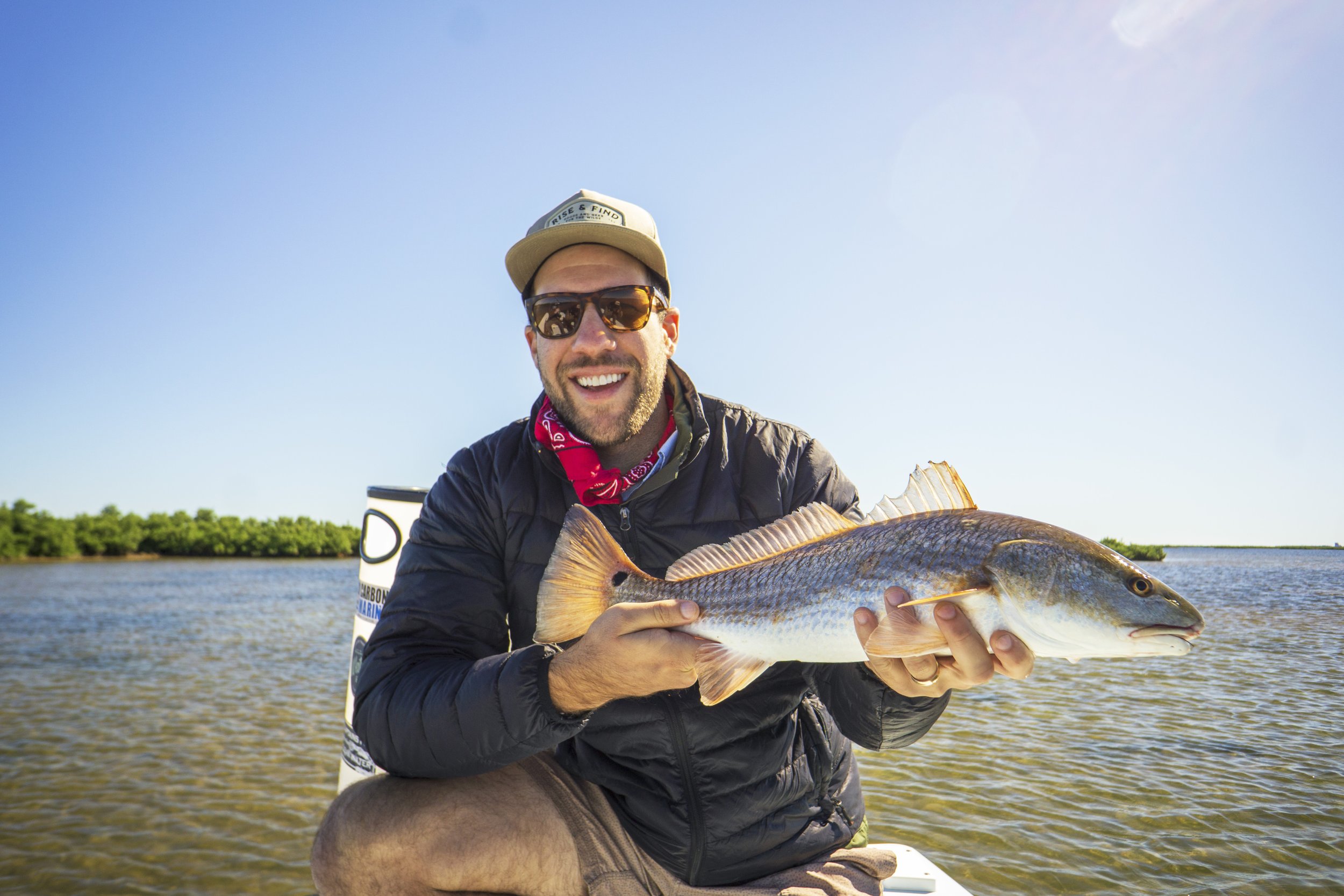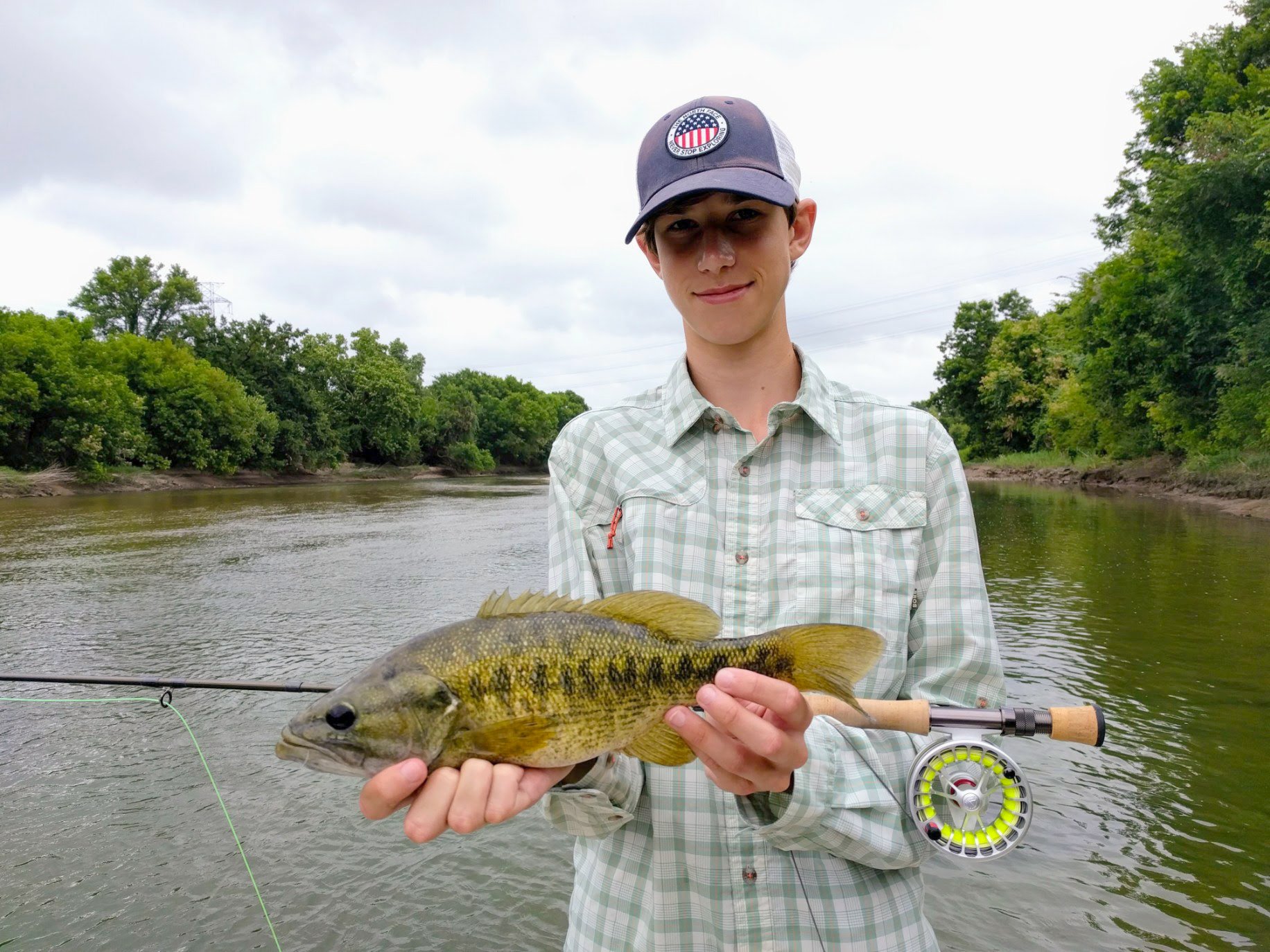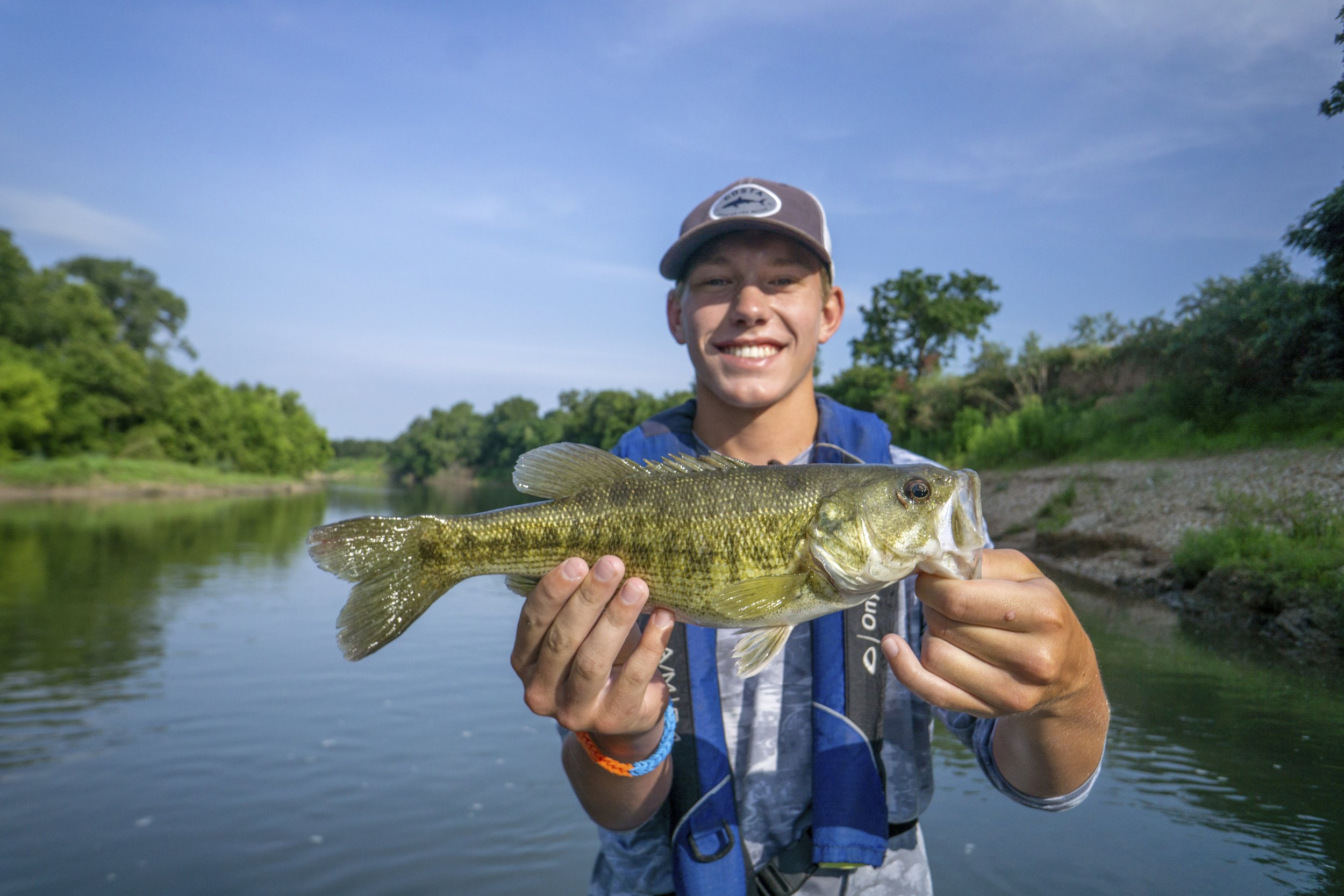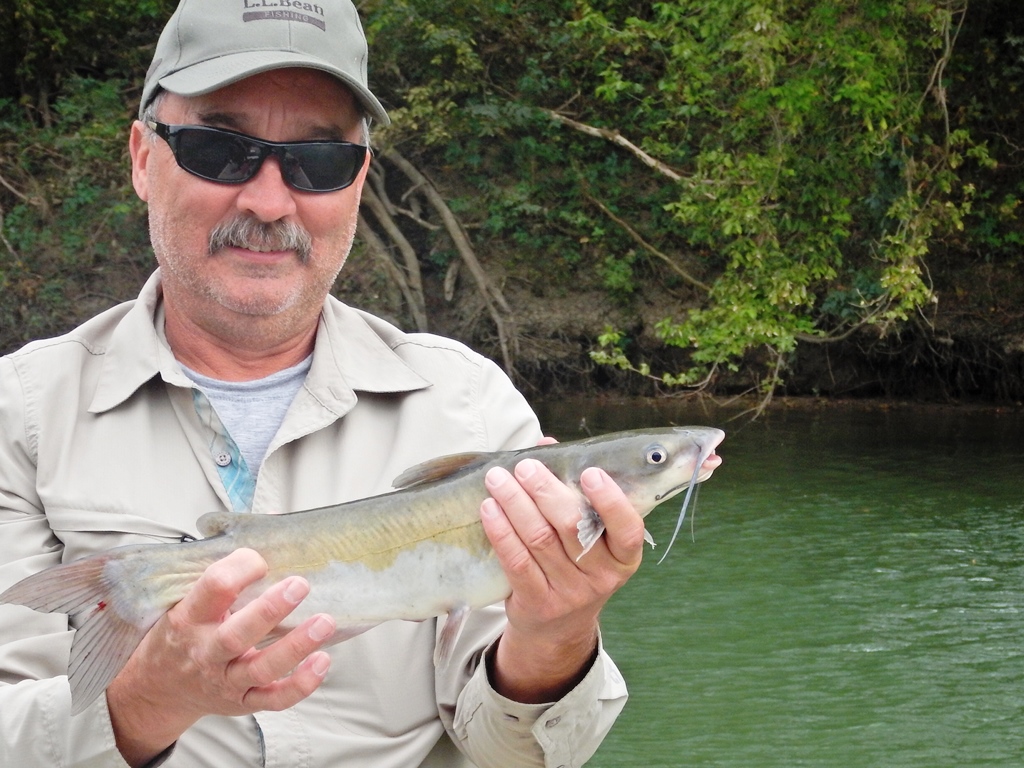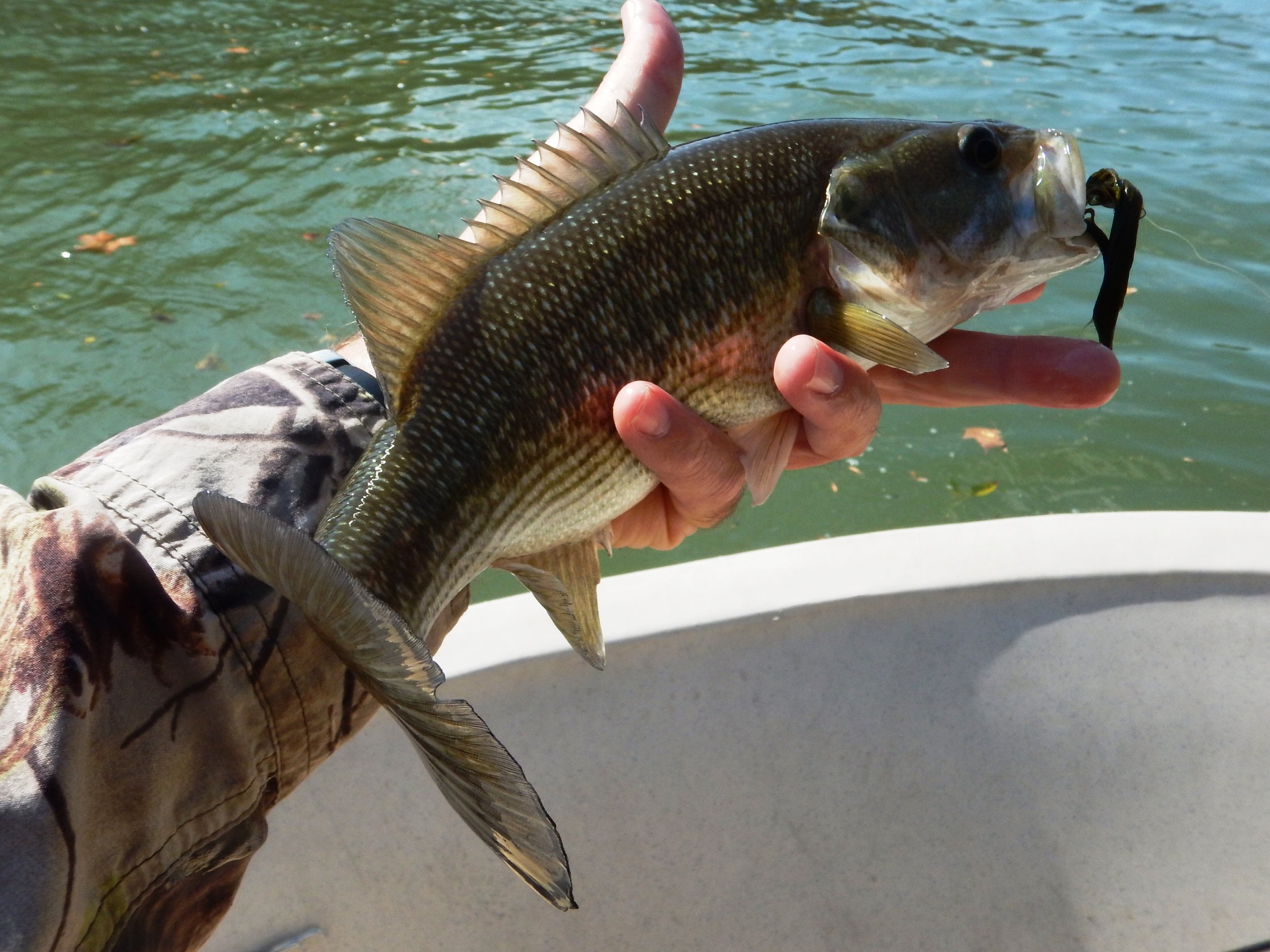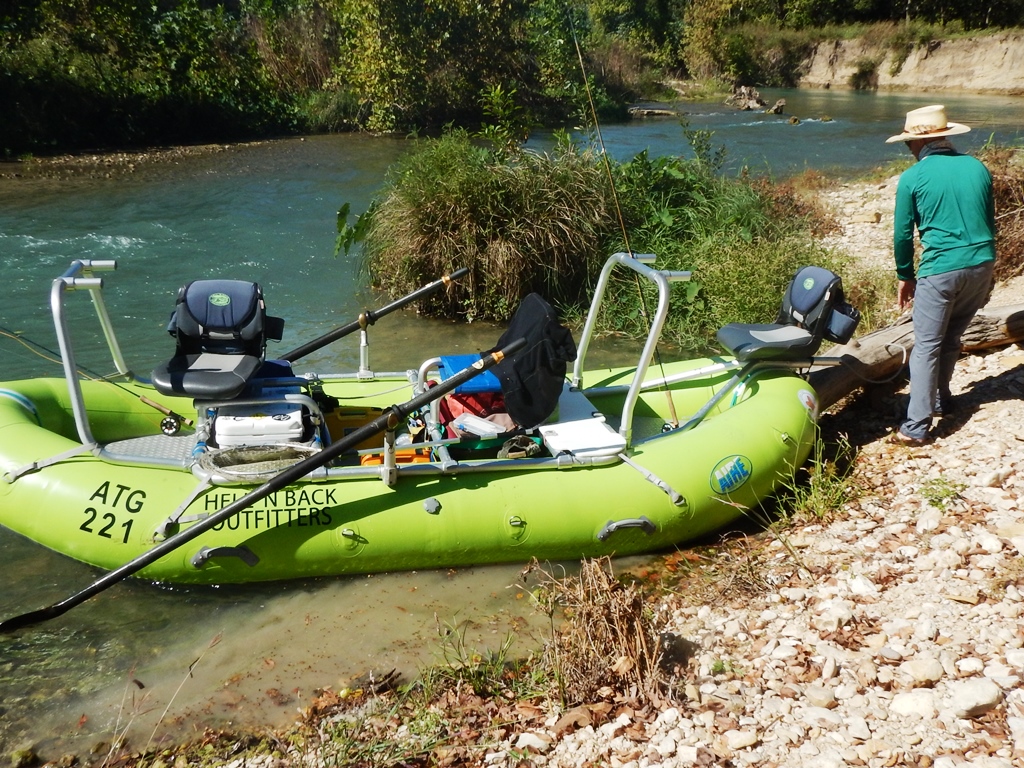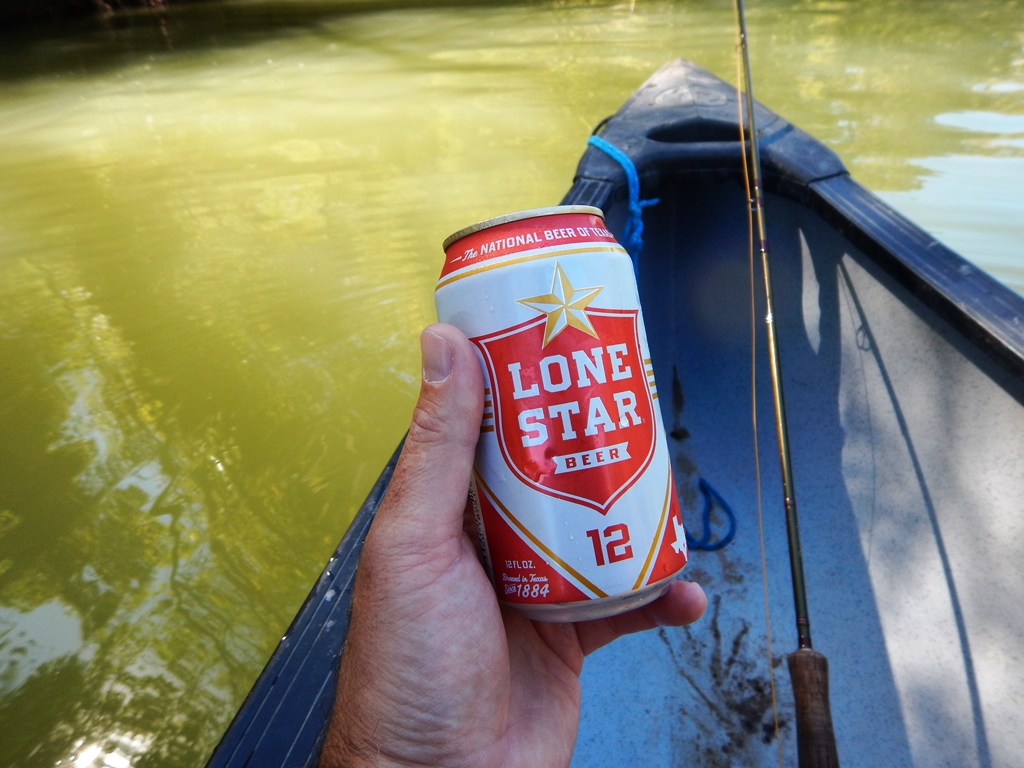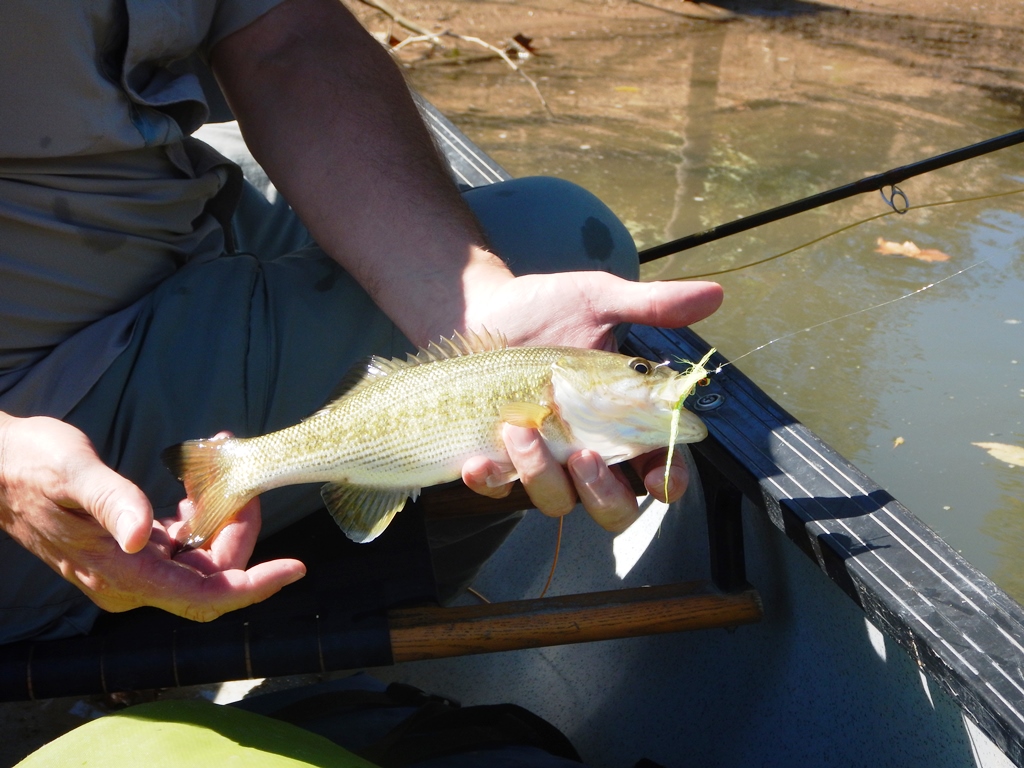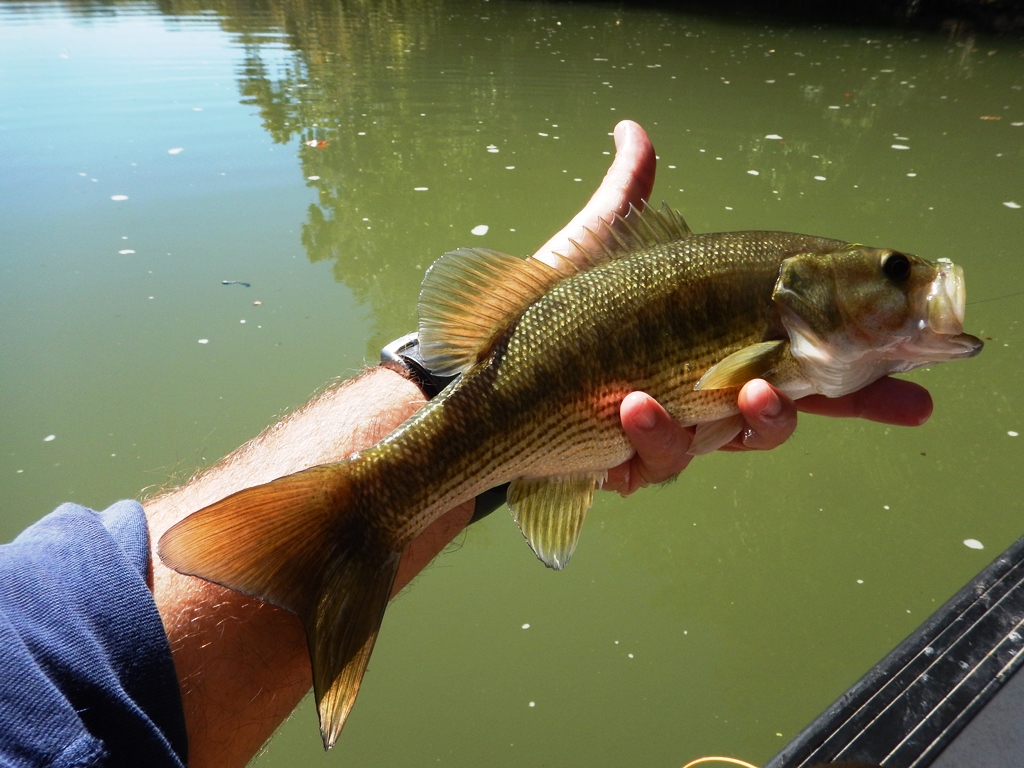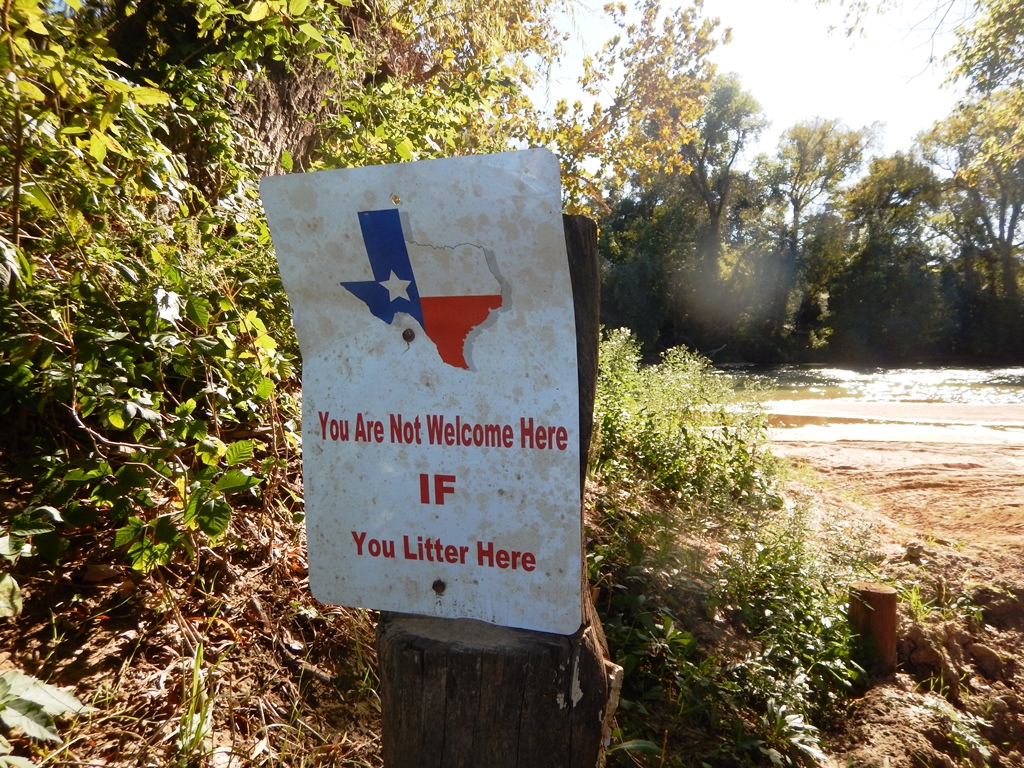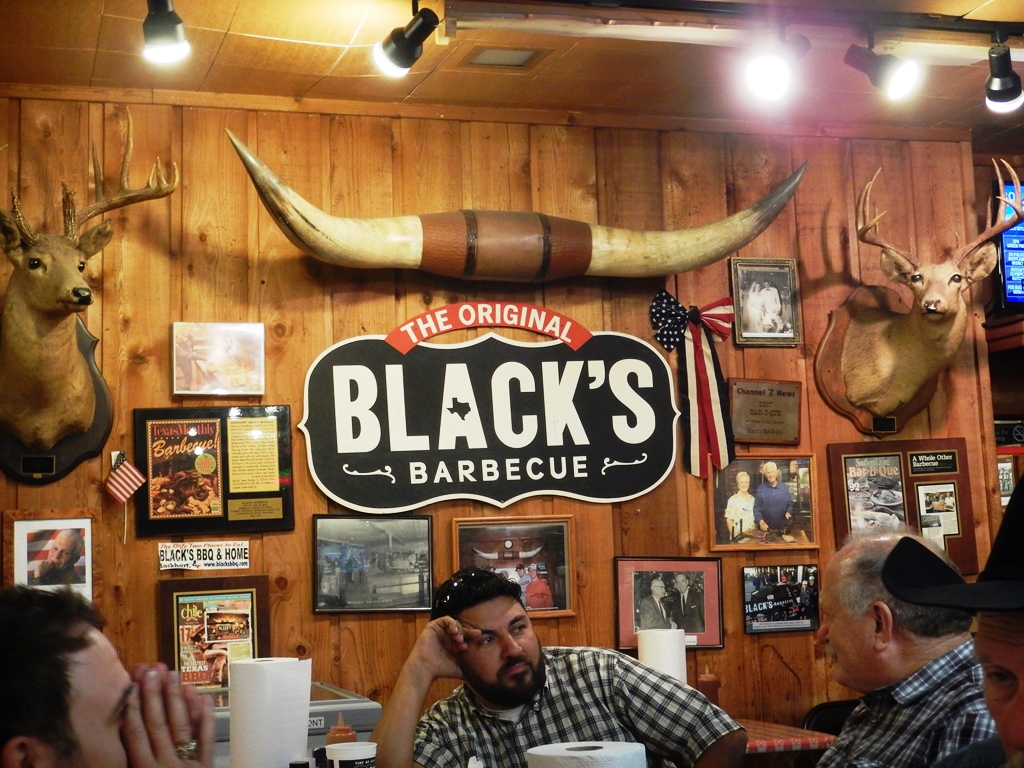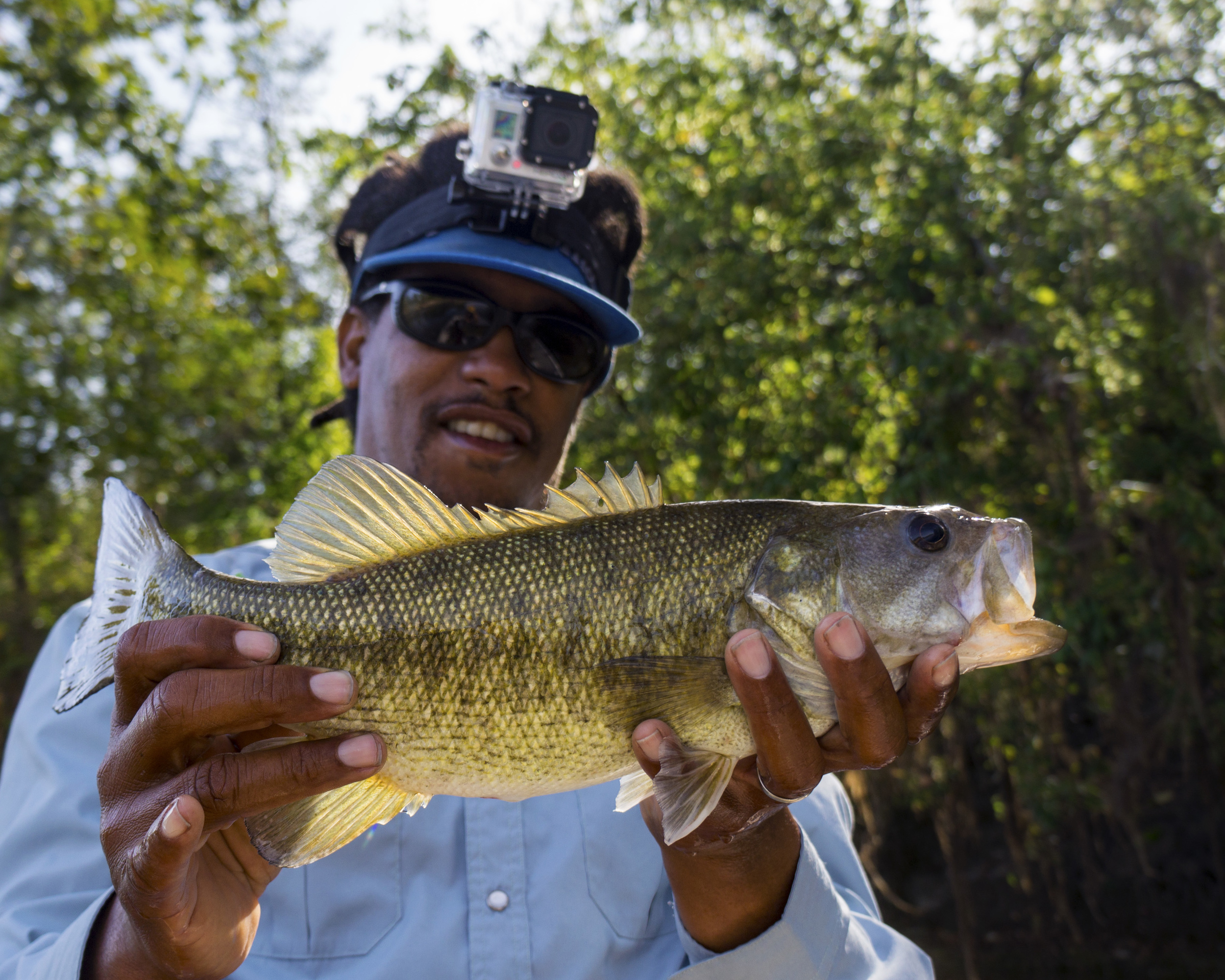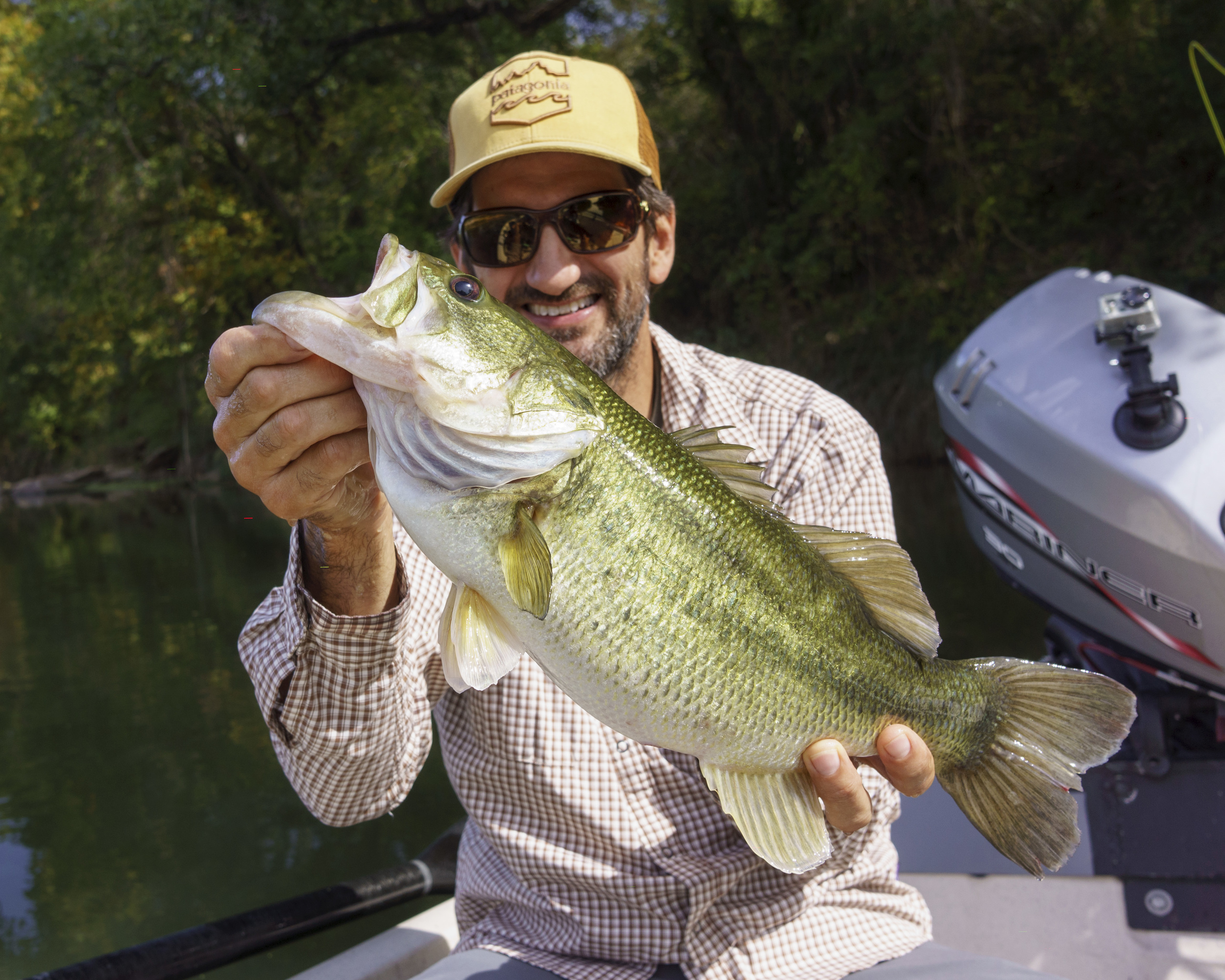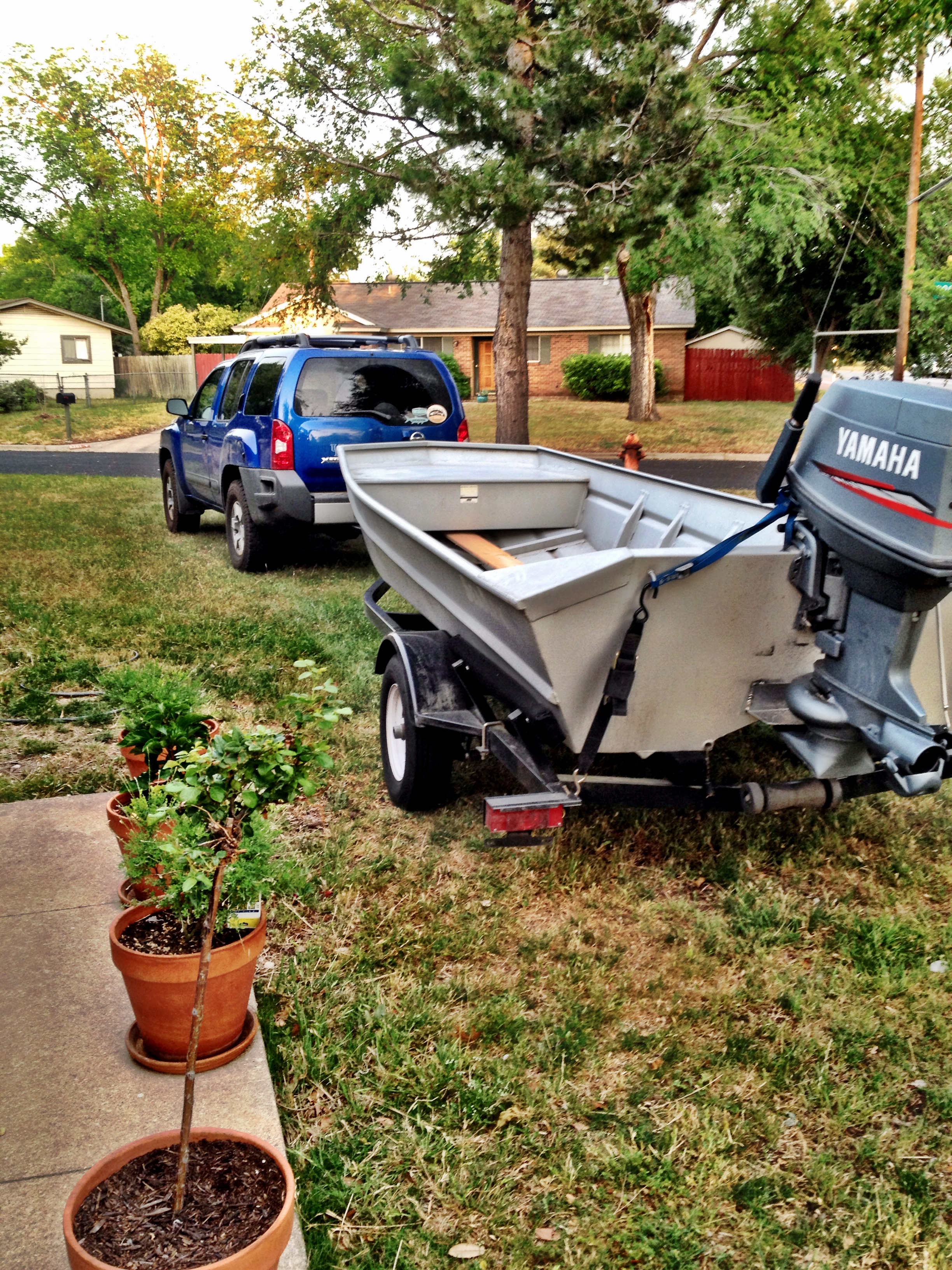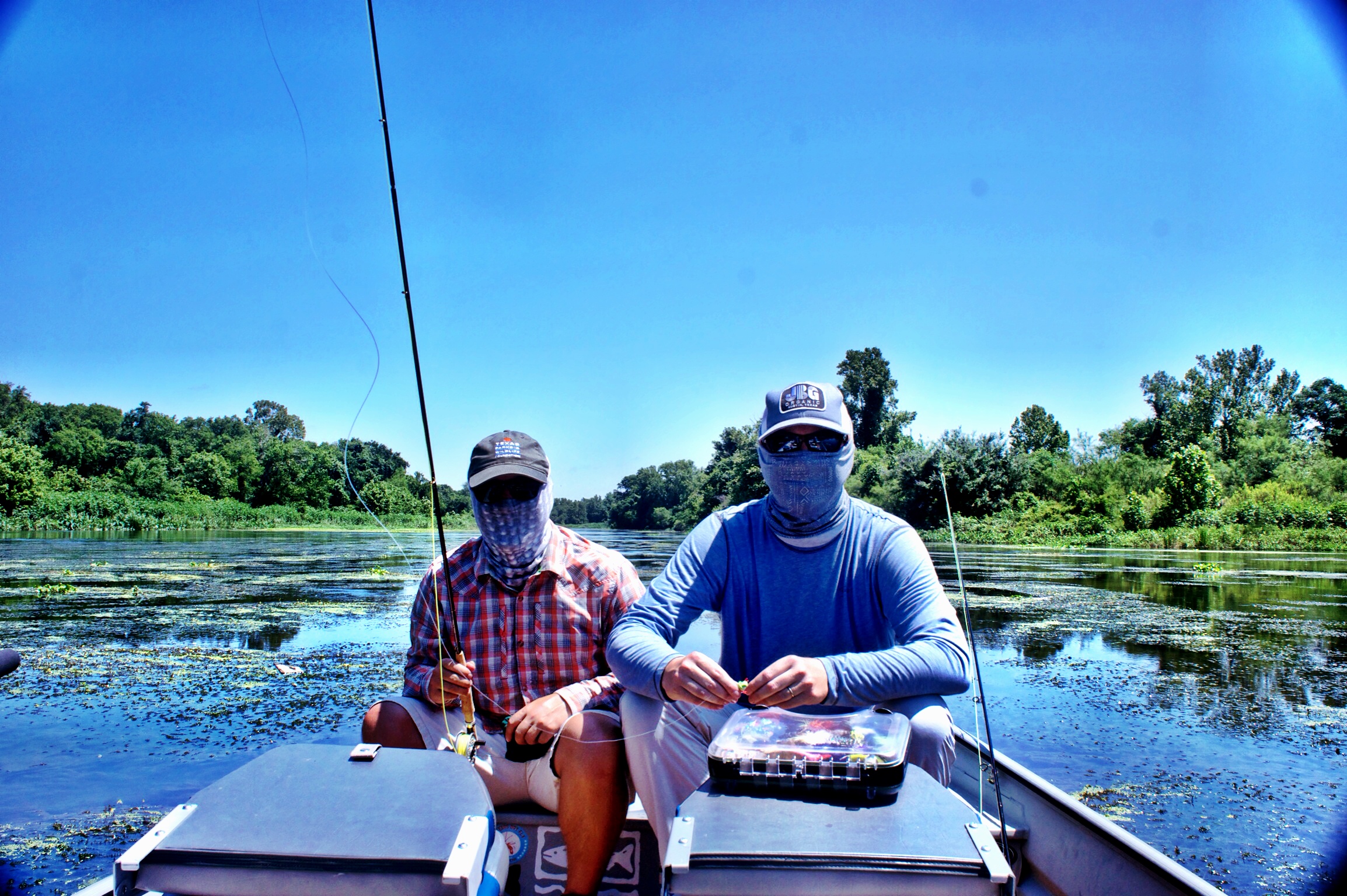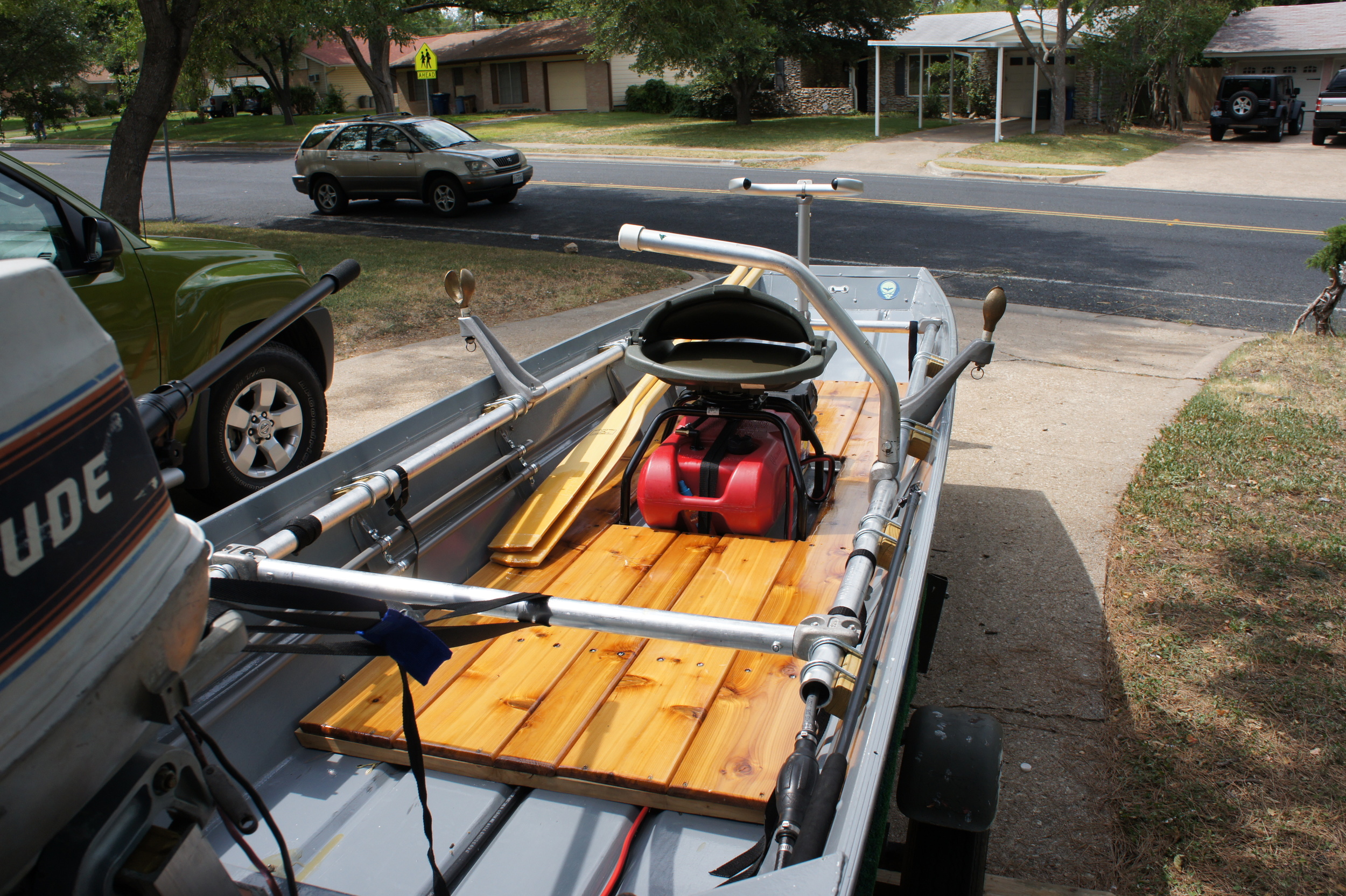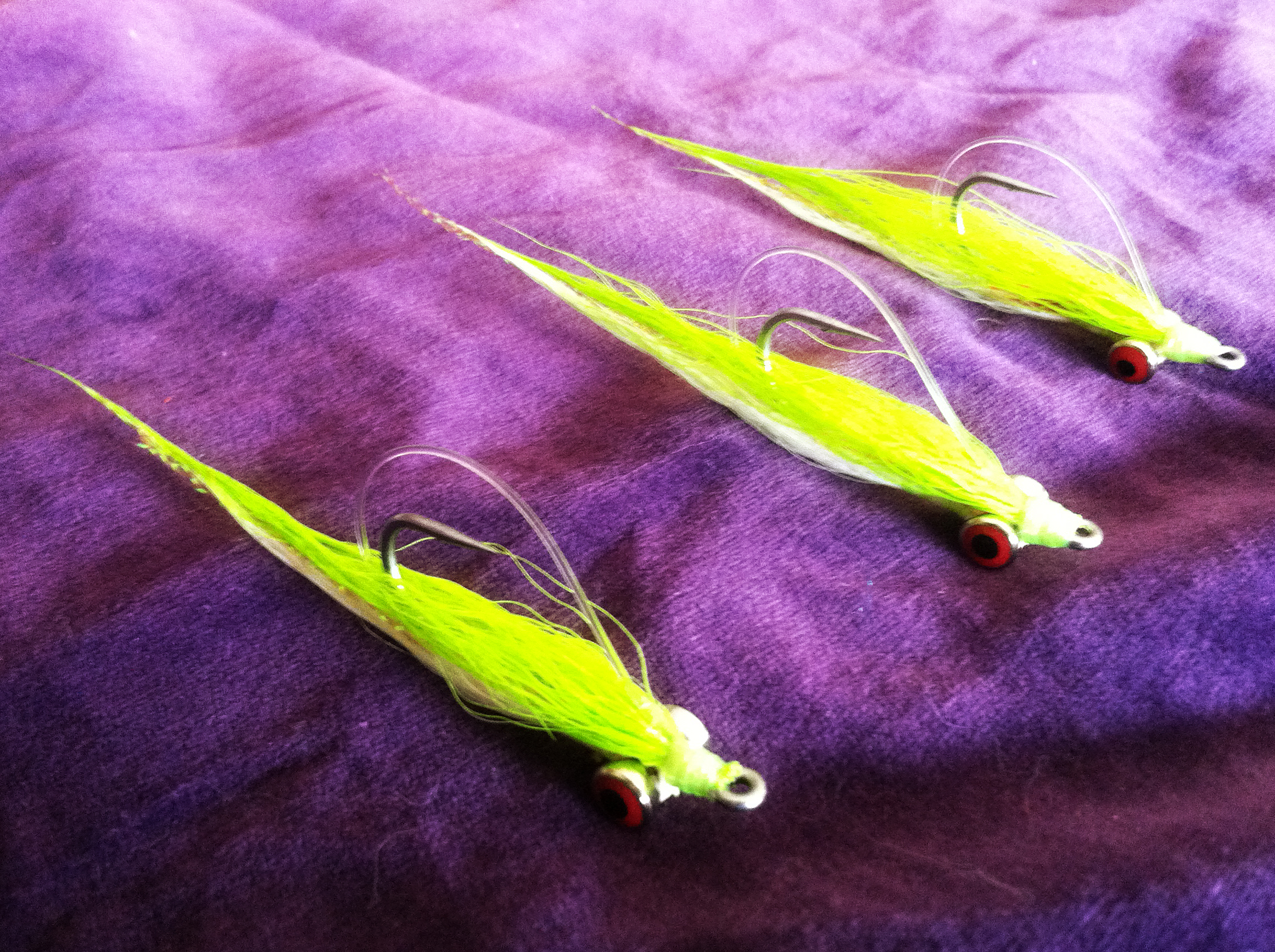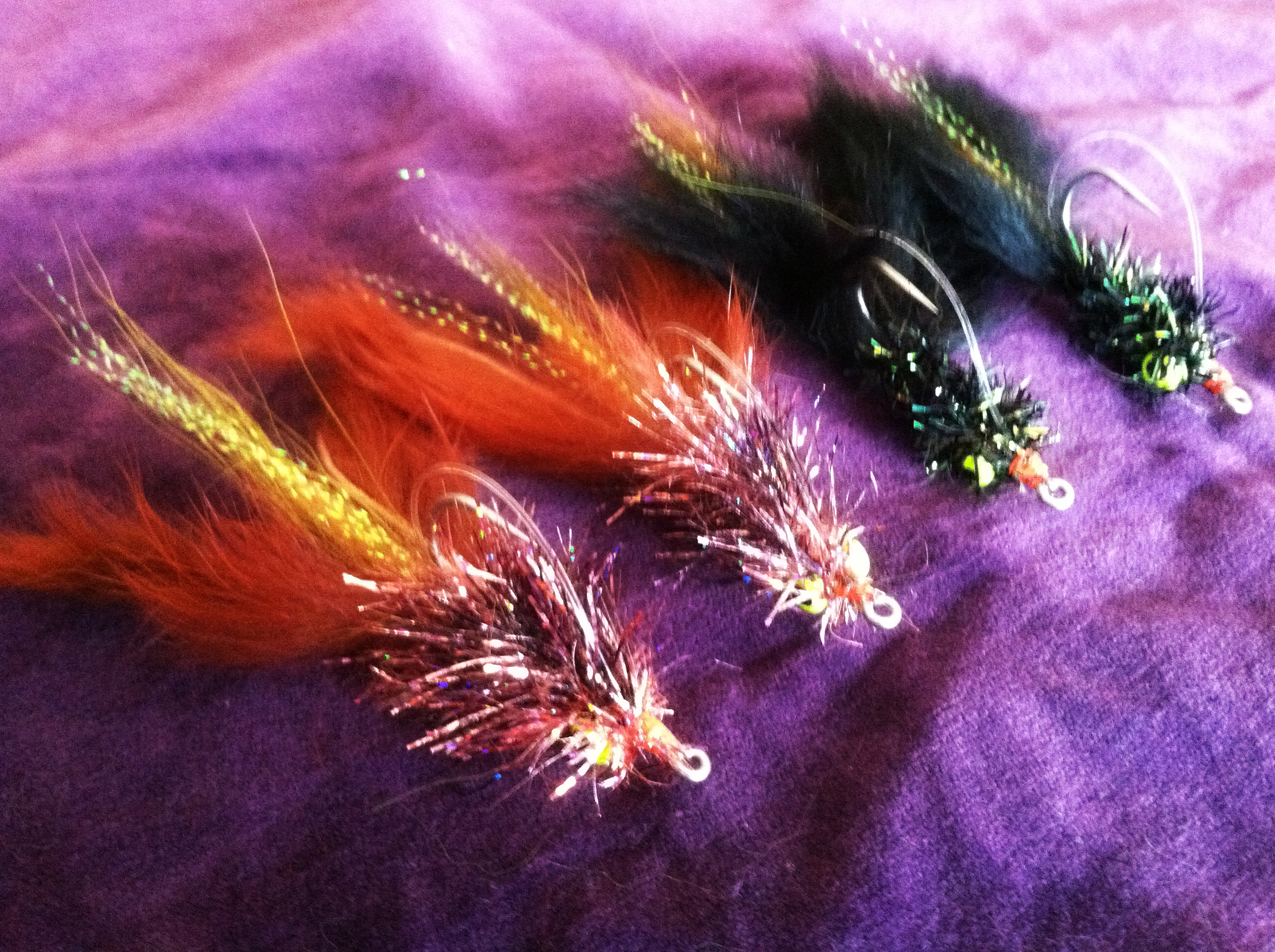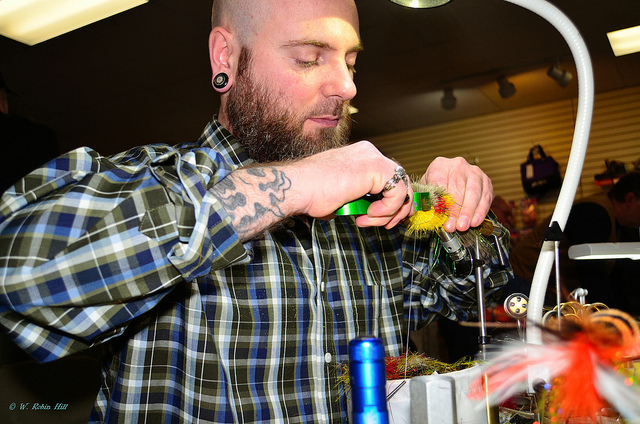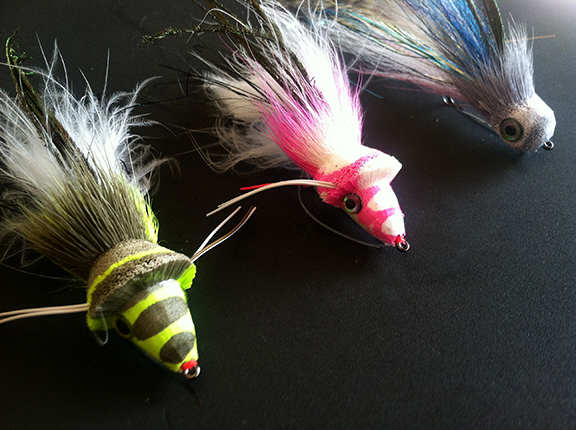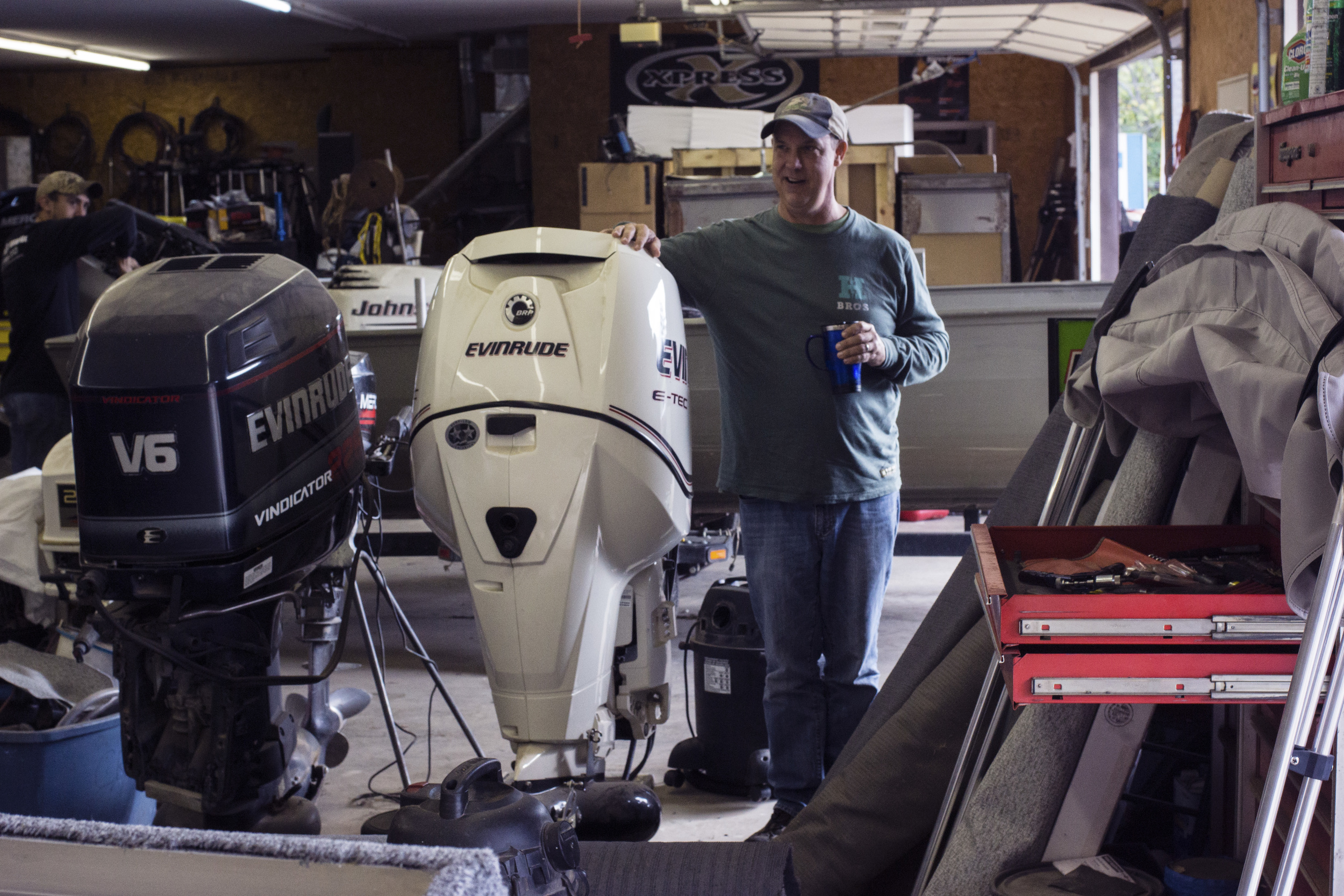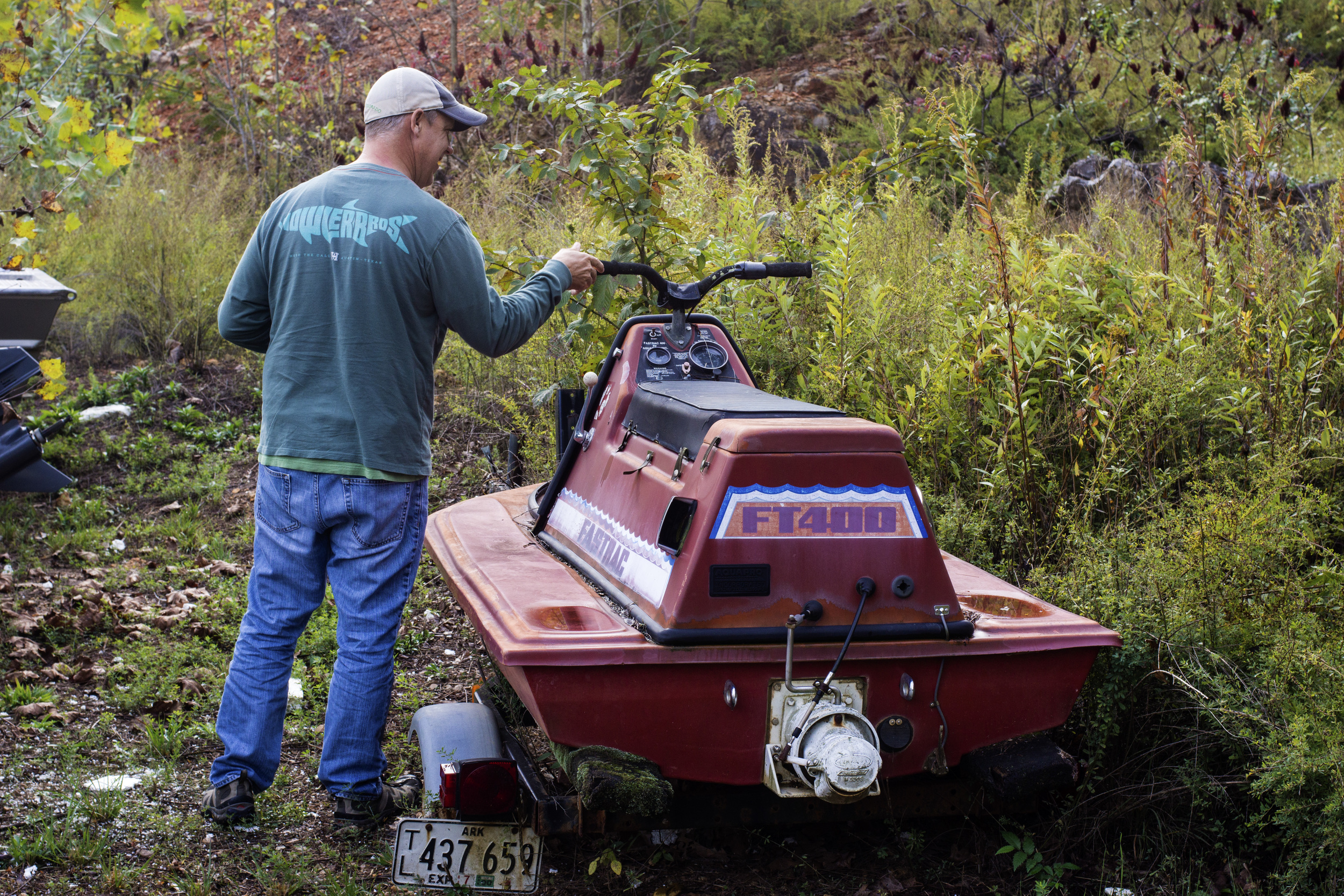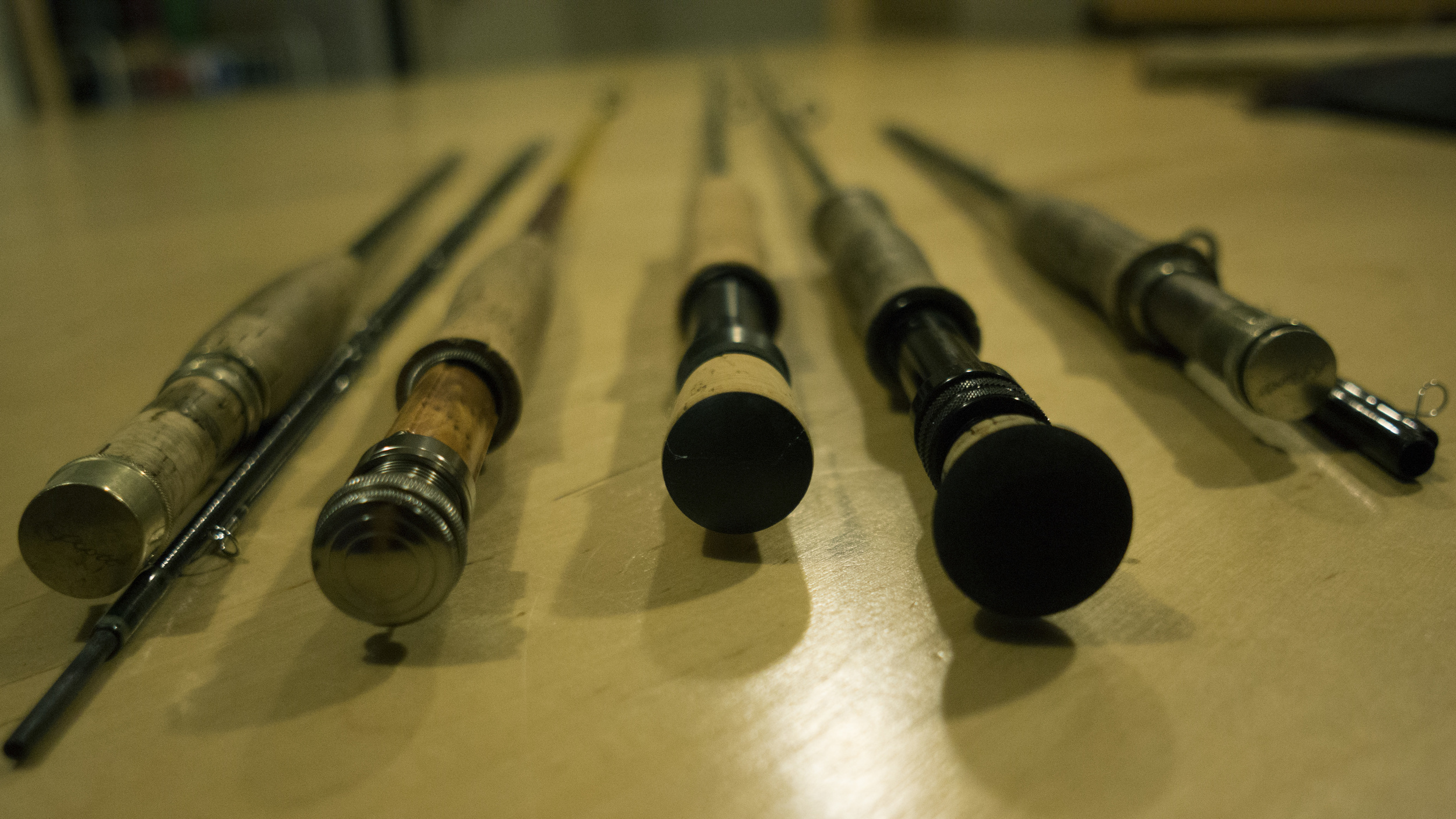Day 4 started back under the Utley Bridge. It was beautiful morning, no wind and a stable air mass. It is a nippy 39 oF, but the sun is warming things up quick. Everyone’s expectations for the day were high.
This time we did the 15 mile downstream run to the fisherman’s access in Bastrop.
While Okey and Alvin set our shuttle I get to hang out in the boat and sip my coffee, while watching the sunrise, and the baitfish nipping at midges. Across the river a whole pack of coyotes were announcing their shift change. Say what you want I think coyotes are cool.
When we finally get started I tag a nice largemouth right away. Okey follows up with a really nice Guadalupe. Then despite what the weatherman promised the pressure changed again and the breeze turns into another blow, and the freaking bass bite shuts off again.
We worked hard for every bass that we boated.
In the afternoon yet again I hook another unknown, unseen sea monster. The creature clamps down on my crawfish pattern, and then ran like heck to the bushes. This time I was prepared with 0X tippet and triple checked knots. I palm my reel trying to slow this beast down, and this time the hook just popped out.
Let me tell you boys’ and girls’ sea monsters do exist and they live in the Colorado River in Texas.
So I guess in summary over 4 days of fishing in 3 different water crafts, we made a whole lot of fly casts, battling 4 days of bass unfriendly high pressure systems Despite which we still caught some bass – smallmouth, largemouth, and their native Guadalupe.
We saw some incredible river scenery which is a lot different than what we have but still sort of familiar. There was a lot of wildlife -- deer, fox squirrels, red tailed hawks, ospreys, bald eagles, herons, egrets, and a lot of other water fowl. Oh and there were turtles too, tens of thousands of turtles.
And we ate some great BBQ, (a whole lot of BBQ.)
If you like to fish for smallmouth bass you will absolutely go nuts over Guadalupe’s. They don’t get very big but they are a flowing water river bass similar in body shape and attitude to our smallmouth, except with a different paint job. It might be blasphemy to say but I think they fight harder too.
In fact Guads are so close to smallmouth they will naturally hybridize, and the introduced non-native smallmouth bass genes are dominate. A while back it was pretty much thought that the Guadalupe’s were on their way to being lost. Texans feel the same way about their Guadalupe’s as we do about our native brook trout. The State of Texas has done a good job bringing Guadalupe’s back from the brink.
What is even crazier still is that that the largemouth bass are native too. Largemouth and Guads evolved to share the river, and they don’t hybridize. Figure that one out?
When it comes right down to it the rivers in the Texas Hill Country offer some great bass fishing from little spring creeks to the much bigger Colorado River. Throw in some striped bass, white bass, and a host of other strange warm water critters that will eat your fly and Austin is quite the warm water fly-fishing destination.
Compared to West Virginia standards, Austin is a really big city that is still rapidly growing with prosperity. Everybody wants to live there.
It has this funky mixture of cowboys and hipsters. There is something going on music wise every single night of the year.
Their traffic is horrendous, with the most courteous drivers I have ever seen.
Everyone must run their own BBQ, as you smell intoxicating hardwood smoke and grilling meat everywhere you go. I think BBQ must fuel the soul of Austin.
Their catch phrase, “Keep Austin Weird” is kind of true.
I saw two guys dressed as super heroes riding their bicycles covered in white twinkling lights through the traffic on South Congress Street. Now that might have had something to do with being close to Halloween, then again it might have been their regular commute to work outfits.
Yeah Austin is sort of like that. And I kind of want to go back….
